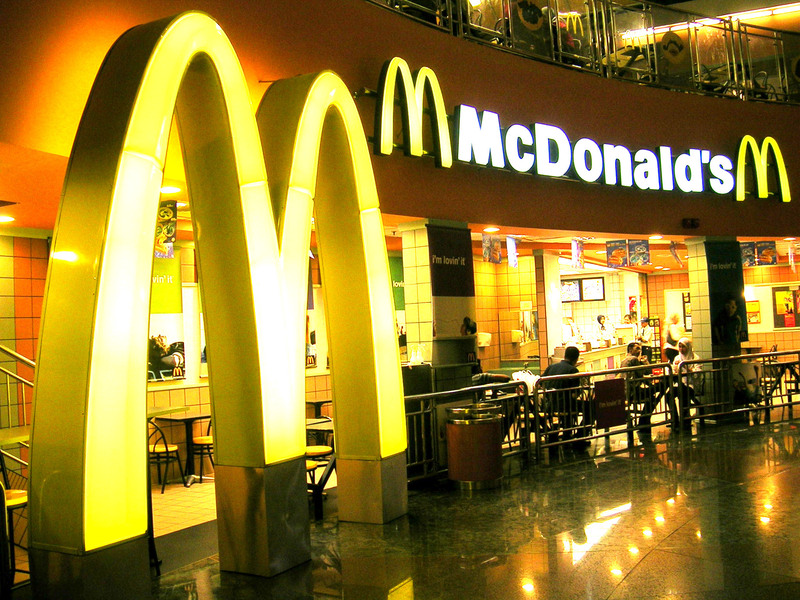Fast-food chains ride wave of growing middle class in India
Date : Jan 13, 2014
 Source & Courtsey :- ndtv.com
Source & Courtsey :- ndtv.com
ndia has long had a reputation as being unfriendly to foreign businesses. But when it comes to fast food, international chains are being warmly welcomed by a young, upwardly mobile population.
In the past few months, Taco Bell, Krispy Kreme, Burger King and McDonald's have either announced plans to expand in India or have opened new outlets around the country. Krispy Kreme was the latest to open a new store with its first outlet in Delhi last month, adding to its five branches in Bangalore.
Despite the country's economic troubles, the average middle-class Indian consumer's spending power is steadily increasing, with more people, particularly women, entering the workforce. Indians' increased exposure to international cuisine through the media and travel also makes the country a desirable destination for international food chains looking to expand globally.
The Indian market for chain restaurants was an estimated $2.5 billion in 2013, according to a study done by analysts at Technopak, a management consulting firm in Gurgaon. And it is expected to grow to $8 billion in 2020, driven by the growth of what is known as quick-service, or fast-food, restaurants.
"In India today, I think people are acquiring new tastes rather than changing their tastes, because it takes a whole generation to actually change tastes," said Pinakiranjan Mishra, partner and national leader for retail and consumer products at Ernst & Young India. "As more and more people acquire money, there are a lot of new consumers who are experimental in nature."
Burger King, the world's second-largest burger chain behind McDonald's, has joined with the Everstone Group, a private equity and real estate firm focused on India, to bring the restaurant chain to India. The first branch is expected to open in the first half of this year. McDonald's is expanding in India with the introduction of the McCafé, a coffeehouse-style chain. In October, Hardcastle Restaurants, the licensee for McDonald's in South and West India, announced the first McCafé in Mumbai.
Sameer Sain, co-founder and managing partner at the Everstone Group, said Burger King was an appealing investment because it could thrive even in a bad economy. Consumers, he explained, will still go out to eat, but not at expensive restaurants.
"There has been some slowdown in growth," he said, "but it continues to remain a very good opportunity in the long term."
International fast-food chains have not encountered much opposition in India, especially compared with big-box foreign retailers like Wal-Mart. Experts in the retail and consumer field say that international fast-food chains are not seen as replacing existing places, unlike Wal-Mart.
"Both Wal-Mart and McDonald's have a very positive impact on the value chain, but the perception is different," said Saloni Nangia, president of Technopak. "People think that big-box retail chains can impact the local companies. While that's not true, that's the perception and that's what the political posturing in the country is."
Still, foreign chains find that operating in India has its challenges. Like every good business, restaurants need to know their customers. In India, that means no beef products, as in McDonald's case, or no egg, as in Krispy Kreme's case.
"The first major challenge for new entrants in the market is menu differentiation and menu creation," said Sain of the Everstone Group. "You have to come up with a good sense of taste and localization without compromising your core product."
The supply chain also presents potential problems, he said, as there are no existing refrigerated transportation networks or national suppliers that can deliver across different locations for various products.
"A lot of international players want to come in, but when they come and check the scene on the ground, they realize that it's not that easy," Sain said. "There's a lot of hard work ahead for Burger King and for anyone who wants to come in, a lot of capital you have to invest, a lot of 'roll up your sleeves and get down into the execution of the business' that is required."
Even so, analysts argue that international chains opening in India today are much more likely to succeed than a few years ago.
"The initial entrants such as McDonald's have done a lot of the hard work - they had to create a market, educate people, change their menus to adapt to Indian taste, create a supply chain network," said Mishra of Ernst & Young. "The people who are coming in now can learn from those mistakes and successes, so that is a big advantage."
© 2014, The New York Times News Service

![]()